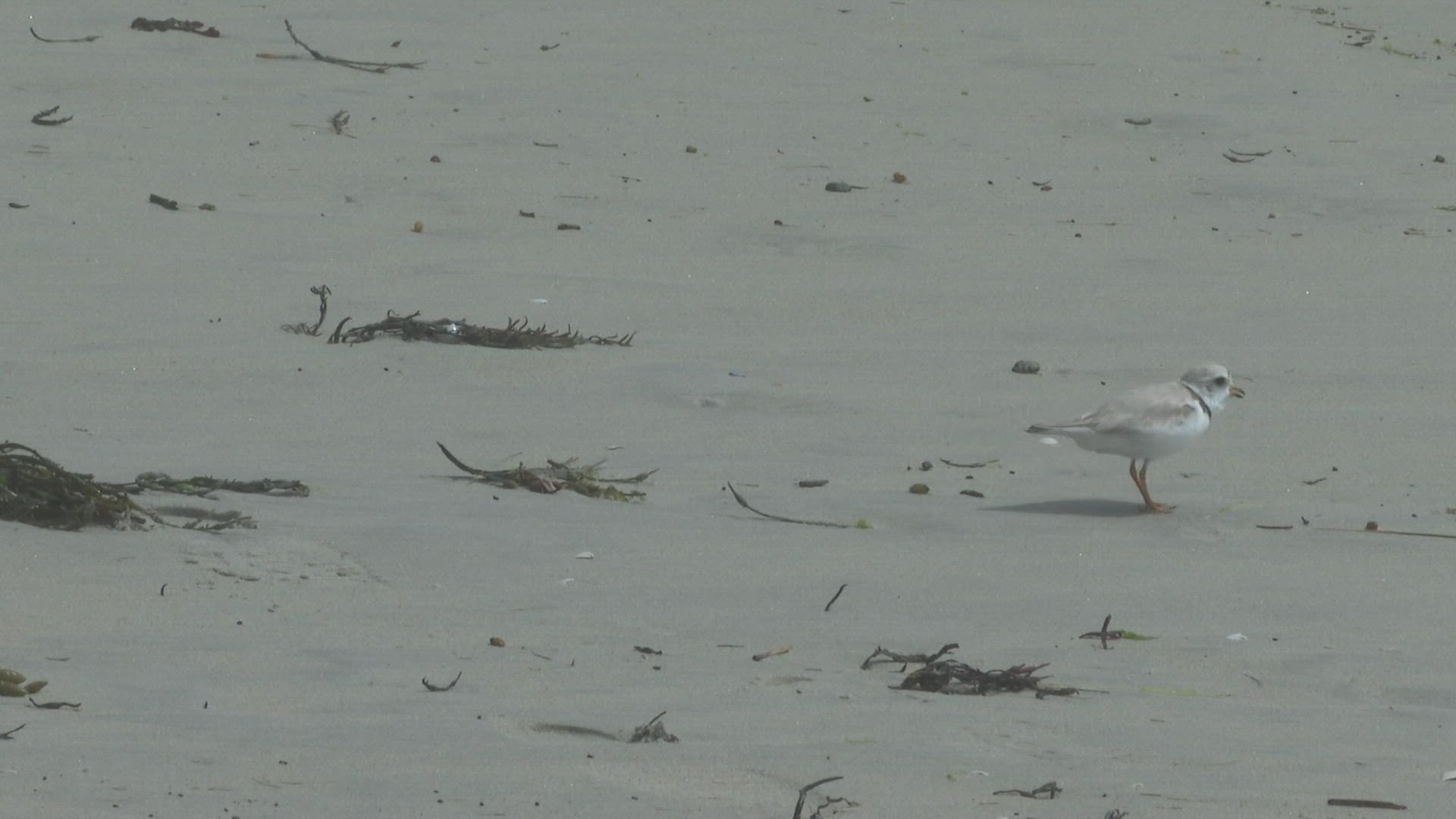OGUNQUIT, Maine — Wildlife Biologist Laura Williams had good news to share, on a foggy June morning at Ogunquit Beach.
The piping plover – a small migratory bird considered threatened by the United States and endangered by the state of Maine – was back in full force.
After returning north from their winter habitats (as far south as South Carolina) in April, Williams and her colleagues with Maine Audubon counted 140 nesting pairs from Ogunquit to Georgetown; up from 125 in 2021.
Plovers like to nest in sand dunes, just out of reach of the changing tides. Though small, that makes them relatively easy to spot while walking along any of the beaches within their nesting range in Maine.
That also means they face a lot of potentially negative interactions with humans and pets. Dogs are not allowed on Ogunquit Beach, and wandering into the nearby dunes carries a $200 fine. Trespassers face much stiffer penalties if their actions injure or kill a plover or disturb its nest.
That kind of legal protection requires enforcement. Lieutenant Neal Pawlik is Ogunquit Police Department's lead plover monitor. Now that tiny chicks are scurrying around the beach, part of his job is educating visitors.
"We try to be understanding in our enforcement of everything," Pawlik said, explaining that he wants to focus on conversations with beachgoers instead of resorting to fines. "Obviously, the beach is for everyone to share. It’s for families to enjoy, and, whether that family is a human family or a plover family, we try to make sure it’s a shared space for everybody."
Despite the police detail and their diminutive stature, the tiny birds are resilient.
"The adults are here in April," Williams said. "They’ve been snowed on, hailed on before, and they just tough it out, they sit on their eggs, they wait for their chicks to hatch, and then they raise them."
After spending 28 days incubating in their eggs, plover chicks can walk and forage for small insects within hours of hatching. They can begin flying within 25 days.
We watched with Williams as a mother plover swapped roles with her mate, the male sliding onto the nest and squatting on a pair of eggs. The mother left to forage nearby, revealing that she had one leg. She hopped toward an insect.
Williams smiled and said one of the group's volunteers had named the bird Peggy.
"I like her odds; they’re good," Williams said, almost immediately after seeing the bird hop around. "It’ll be easier especially, too, because she’s only got two eggs, so, she’ll only have two chicks to worry about and chase after."
Plovers can lay up to four eggs in a season. Williams said Peggy should be to migrate south with the other 140 nesting pairs, as well as the hundreds more that will pass through Maine from points north.
Before leaving, Williams said having plovers nest on your beach is a sign you have a healthy ecosystem.
And like most healthy ecosystems, she said, all we need to is get out of the way and it will thrive.

